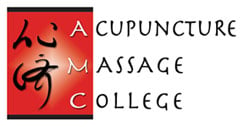A new study by American Cancer Society researchers published this week in Cancer finds many cancer patients use complementary methods, most often prayer, relaxation, spiritual healing, supplements, meditation, religious counseling, and massage. The study is one of the largest and most detailed reports examining complementary and alternative medicine use among cancer survivors.
ACS researchers surveyed more than 4,000 survivors of ten different cancers who were participants in the American Cancer Society’s Study of Cancer Survivors. Participants were surveyed 10 to 24 months after diagnosis. The study authors found that more than half used some type of alternative or complementary therapy.
"Many complementary methods are extremely popular among cancer survivors, who are spending a lot of their time, money, and attention on them," said Ted Gansler, MD, Director of Medical Content at the American Cancer Society and co-author of the study. "For this reason, it's important to determine which are helpful, not only for shrinking tumors and extending survival, but also for relieving symptoms and improving quality-of-life."
The researchers looked at 19 different complementary methods. Survivors listed the following practices most frequently: Prayer/spiritual practice (61.4%), relaxation (44.3%), faith/spiritual healing (42.4%), nutritional supplements/vitamins (40.1%), meditation (15%), religious counseling (11.3%), massage (11.2%), and support groups (9.7%).
The study is the first of several reports that will examine American Cancer Society's Study of Cancer Survivors data to further investigate the topic of complementary and alternative medicine use among cancer survivors. Findings of the recent report confirmed data from previous surveys that found cancer patients favor similar complementary methods to those used among the general population, such as dietary supplements, spiritual practices and relaxation methods.
Of the survey participants, younger, more affluent and more educated cancer survivors were more likely to use the therapies. Breast and ovarian cancer survivors were more likely to use alternative and complementary therapies than survivors of other cancer types. More research is needed into why these groups are more likely to embrace the methods.
"We need to learn more about why some people use certain complementary methods, why others don't, what benefits users expect, and how effective various complementary methods are in improving survivors' length and quality of life," said Gansler.
There are several complementary methods that can be safely used in conjunction with conventional therapies to help relieve cancer symptoms, treatment side effects and to enhance life quality including: acupuncture, aromatherapy, biofeedback, massage therapy, meditation, music therapy, prayer and spirituality, Tai Chi, and yoga, among others.
For information about Acupuncture & Massage College’s Oriental Medicine and Massage Therapy programs call Joe Calareso, Admissions Director, at (305) 595-9500. Aug 11.

 (305) 595-9500
(305) 595-9500






